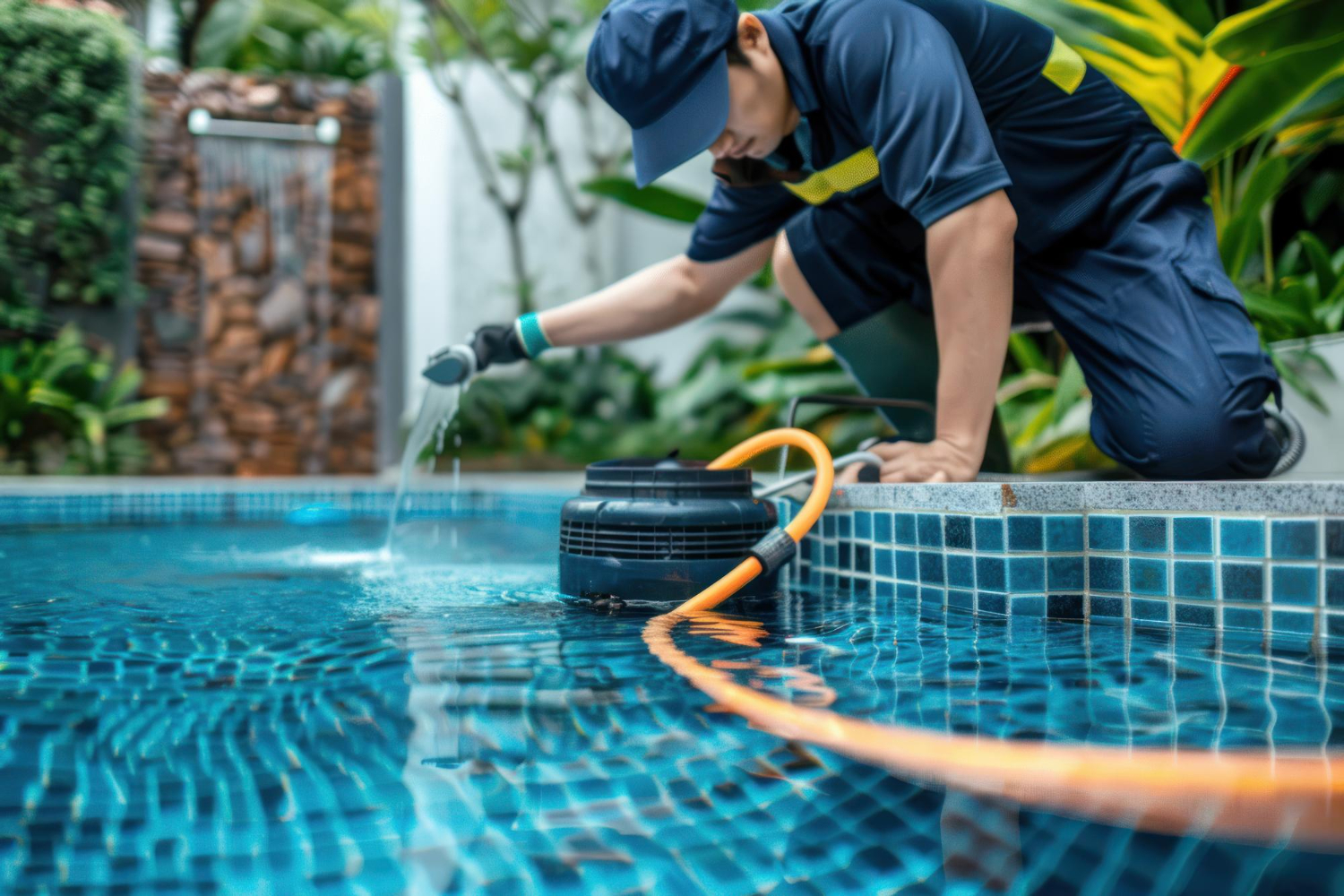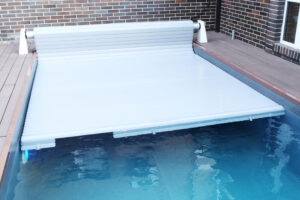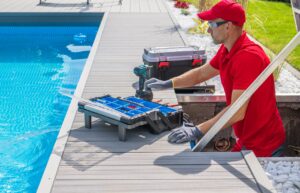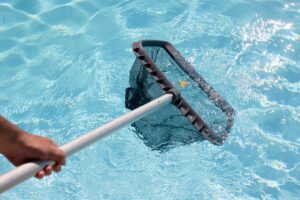Owning a pool for the first time can be exciting, but it also comes with its own set of challenges. Taking care of your pool isn’t just about enjoying clear, sparkling water; it’s also about regular maintenance to ensure it remains safe and healthy for everyone. Understanding the basics of pool care will make your new role as a pool owner much easier and more enjoyable.
One of the key aspects of pool care is regular cleaning. Keeping your pool free of leaves, debris, and algae helps maintain good water quality and prevents clogs in your filtration system. A clean pool not only looks inviting but also reduces the likelihood of having to deal with bigger maintenance issues later.
Balancing pool chemicals is another essential part of pool care. Proper chemical levels keep the water safe for swimming by preventing harmful bacteria and algae growth. It might sound complicated at first, but once you get the hang of it, balancing pool chemicals is straightforward and easy to manage.
Maintaining pool equipment is just as important as cleaning and chemical balancing. Your pump, filter, and other equipment need regular check-ups to work efficiently. Proper care of your equipment ensures that your pool remains in good working order and extends the lifespan of these essential components.
Seasonal care is the final piece of the puzzle. Different times of the year require different pool maintenance routines. Knowing how to adjust your care strategy for each season will help you keep your pool in top condition all year round. With these tips and tricks, you’ll be well-equipped to handle your new pool with confidence.
Essential Pool Cleaning Tips
Keeping your pool clean is key to maintaining clear, inviting water and preventing bigger issues down the road. Regular cleaning involves a few simple steps that can make a big difference.
First, skim the surface of your pool daily to remove leaves, bugs, and other debris. A good skimmer net helps you quickly collect all floating debris before it sinks and causes stains. Empty the skimmer basket frequently to keep the system working well.
Next, brush the pool walls and floor at least once a week. Use a pool brush that matches your pool type—nylon for vinyl or fiberglass, stainless steel for concrete—to scrub off algae and dirt. Pay extra attention to corners, steps, and ladders where buildup is more common.
Finally, vacuum the pool weekly to remove the debris that brushing loosens. You can use a manual vacuum or an automatic pool cleaner. Both work well, but automatic cleaners save time and effort. Make sure to clean and maintain your vacuum to ensure it operates efficiently.
By following these simple cleaning steps, your pool will remain sparkling clean and ready for fun.
Balancing Pool Chemicals Made Easy
Balancing your pool chemicals might seem tricky at first, but it’s crucial for keeping the water safe and clear. Here are some tips to help you get the hang of it.
Start by testing your pool water regularly—ideally once a week. Use a reliable pool testing kit to check the levels of pH, chlorine, and alkalinity. The pH should be between 7.2 and 7.6, while alkalinity should be between 80 and 120 parts per million (ppm). Chlorine levels should be around 1 to 3 ppm.
Adjust the chemicals as needed. If the pH is too high, add a pH decreaser; if it’s too low, add a pH increaser. For alkalinity, use an alkalinity increaser or decreaser depending on your test results. Add chlorine tablets or granules to maintain proper chlorine levels. Always follow the instructions on the chemical packaging for the correct dosages.
Shock your pool every couple of weeks or after heavy use. Pool shock helps eliminate bacteria, algae, and other contaminants. Simply add the shock treatment in the evening and let the pump run overnight to evenly distribute it.
Keeping a logbook of your chemical levels and adjustments can be helpful. This way, you can track changes over time and spot any patterns that might need attention.
With these easy steps, balancing your pool chemicals becomes a straightforward task, ensuring your pool remains a safe and enjoyable place to swim.
Maintaining Your Pool Equipment
Taking good care of your pool equipment ensures that everything runs smoothly and lasts longer. Here are some tips to keep your equipment in top shape.
First, check your pool pump and filter regularly. Make sure the pump is running efficiently by listening for unusual noises and checking for leaks. Clean the filter according to the manufacturer’s instructions. Most filters need to be cleaned every few weeks, but it might vary based on usage and pool size.
Inspect your pool’s skimmer and pump baskets weekly. Clear out any debris to prevent clogs and ensure good water flow. Keeping these baskets clean helps the pump work less hard, which can extend its lifespan.
If your pool has a heater, test it before the swimming season starts. Turn it on and make sure it heats the water properly. If you notice any issues, like the water not getting warm enough or strange noises, have it serviced by a professional.
Store pool accessories like vacuums, hoses, and nets properly when not in use. Keeping them out of the sun and away from chemicals prolongs their life. Check for wear and tear regularly and replace items as needed to keep everything in good working order.
By regularly maintaining your pool equipment, you ensure a trouble-free swimming experience and avoid costly repairs.
Seasonal Pool Care Advice
Different seasons bring different challenges for pool care. Here’s how to take care of your pool throughout the year.
Spring: Start by opening your pool. Remove and clean the cover, then store it properly. Reconnect equipment and check for any winter damage. Test and balance the water chemistry before starting up the pump and filter.
Summer: During the swimming season, maintain regular cleaning and chemical balancing routines. Check the water level often, as it can drop due to evaporation and splashing. Keep the pool area tidy to avoid dirt and debris getting into the water.
Fall: As leaves start to fall, skim the pool more frequently to keep it clean. Test the water regularly, since changing temperatures can affect chemical levels. If you’re planning to close the pool for winter, start preparing by deep cleaning and balancing the water.
Winter: If your pool is closed, monitor the cover to make sure it’s secure and free of debris. If your pool remains open, keep the water balanced and clear of debris, checking equipment for any ice or frost damage in colder climates.
By following these seasonal tips, you keep your pool in excellent condition year-round, making it ready for the next swimming season with less hassle.
Final Thoughts
Managing your pool as a new owner can seem challenging, but by following these tips, you’ll find it much easier to keep your pool clean, safe, and inviting. Regular cleaning, balancing your pool chemicals, maintaining equipment, and adjusting care routines for each season are all essential steps.
Neglecting these tasks can lead to problems, but with a little effort, you’ll keep your pool in great shape. Always remember to check your pool’s specific needs and adjust your care routine accordingly.
For all your pool care needs, from chemicals to equipment and advice, visit Cincinnati Pool and Patio. Our Cincinnati pool dealers are here to help you make the most of your pool year-round. Keeping your pool in top condition ensures endless fun and relaxation. Let’s make pool ownership a breeze together!








